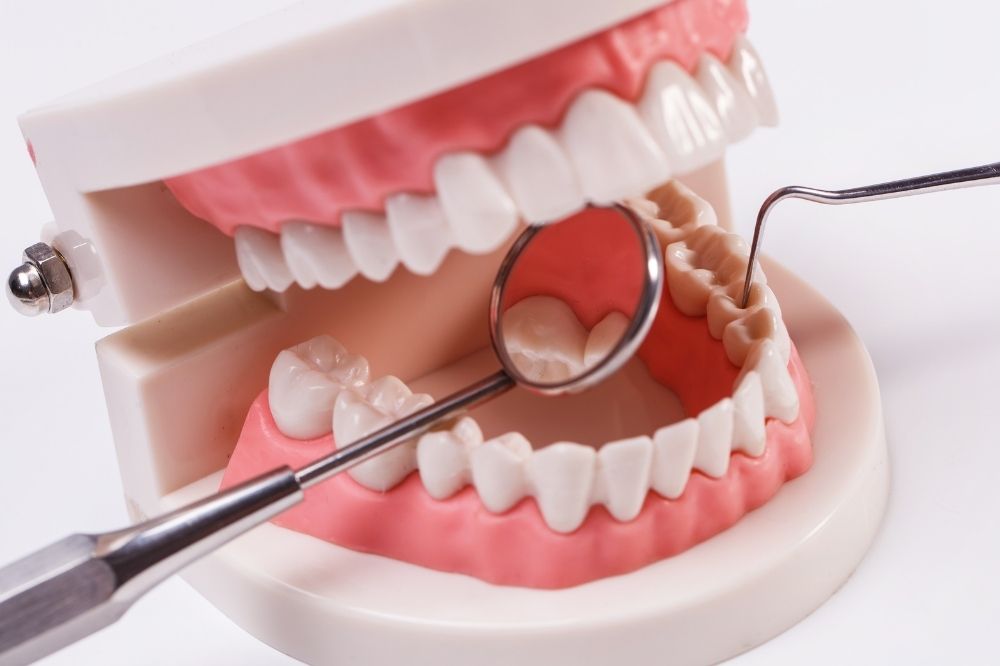
Periodontology
Department of dentistry studying clinical and microscopic structure of hard and soft tissues surrounding teeth, diagnosing and treating diseases effecting those tissues, and providing maintenance of health.
Signs of Gingiva Disease
Primarily, it should be stated that healthy gingiva has light pink color. It is tightly attached to tooth and bone and has a bright- rough display like orange peel. However:
- If gingiva is bleeding,
- If there is swelling and redness on gingiva,
- If there is gingiva recession and sensitivity on exposed root surfaces,
- If dark spots are observed on gingiva margin or between teeth due to calculus,
- If inflammation discharge exists between the tooth and gingiva,
- If there is mobility, elongation and diastema between teeth,
- If there is bad breath, taste inside oral cavity,
then you should be examined by a dentist immediately and start your treatment.
Causes of Gingiva Disease
The main cause of gingiva disease is sticky transparent layer that surrounds tooth surface and it is called bacterial plaque. You may notice this plaque when you scratch your tooth surface. One milligram of bacterial plaque is consist of nearly 500 million bacteria. However, the only cause of gingiva diseases is not bacterial plaque. Breathing from mouth is also an important factor for gingiva diseases.
- SMOKING: Smoking may lead very important diseases like cancer, lung, cardiac diseases and also it is an important threat for our teeth. When it is considered in terms of gingiva, smoking may lead softening of gingiva and development of gingiva diseases by damaging intra oral mucosa.
- DRUG UTILIZATION: Birth control drugs, anti- depressants, cardiac medications have important effects on oral health. People who are using those kind of medications should be under supervision of a physician frequently.
- HORMONAL CHANGES: Your gingiva becomes more sensitive in periods when hormonal changes are intense like pregnancy, puberty, menopause, menstruation. In those periods of hormonal change , gingiva should be kept more hygienic.
- DISEASE OF THIS ERA: Stress which has become one of the untreatable diseases of this era due to growing cities and life styles getting harder each day,has also negative effects on oral and dental health. Stress facilitates infection for our body thus, getting away from it will be a positive approach not only for your teeth but also your entire body.
- GENETICAL FACTORS :If a dental problem code is included in the genes of family then it can be transferred to the next generation. In this case, a little neglection of oral and dental health leads infection for the individual. Therefore, if there are family members having dental problems previously then it should be proper to visit dentist more frequently.
- TOOTH CLENCHING – TOOTH GRINDING: It damages periodontal tissue by leading weakening of connective forces between the tooth and gingiva. One of the causes of gingiva recession is tooth grinding. Certainly, night guard should be applied and this grinding should be ceased.
- DIABETES: Patients with diabetesare included in high risk group in terms of periodontal (gingiva) infection. They have to be checked periodontally by a gingiva specialist (periodontist) routinely. Beside they should be more meticulous about their oral hygiene than other people.
- MALNUTRITION : Nutrition is an important factor for every organ of our body beside gingiva and teeth. Our body gets weak due to malnutrition and this may also damage gingiva.
- IMPROPER CROWN BRIDGE AND FILLINGS: Over filled fillings, crowns and bridges which are making pressure on gingiva creates a problem for gingiva.
